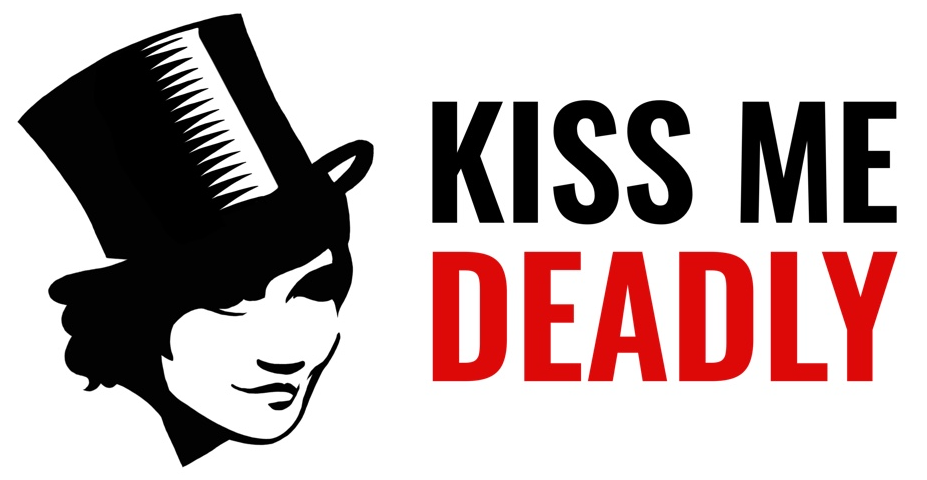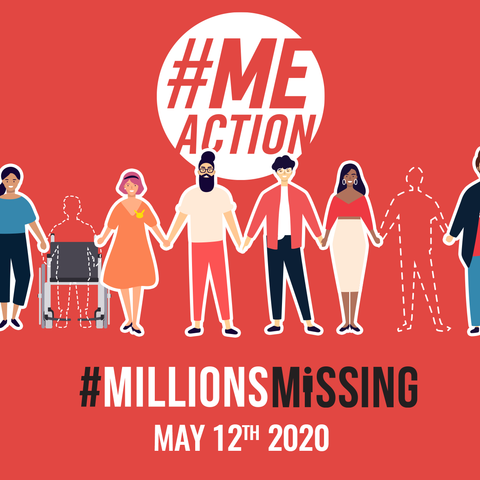Sometimes, an illness is for life, not just a pandemic.
When that happens you can definitely develop Opinions, and mine include both that M.E Action, the campaign for better recognition, research and care for M.E is very much needed, and that omg I just can't even with their angle on it this year.
Also my illness like irony so it managed to play up and make me miss the date; I'm basically allergic to deadlines. Anyways, let's catch up!
Starting with some background; many years ago I went through a series of viruses and came out at the end with a laundry list of issues and diagnostic labels - M.E/C.F.S, fibromyalgia, IBS, migraines, vulvodynia, vestibulodynia, lichen sclerosus, Von Willebrands, and some other stuff. This year I also have a head fungus my immune system can't shake; I've called it Trevor.
M.E is a super vague diagnosis in the UK. Do you have fatigue that can't be explained by whatever selection of tests you can persuade them to let you have? Congrats, you have now been put in the M.E dustbin (trashcan).
As you can imagine, labels this vague aren't terribly useful for research, treatment, or anything else really. Most of the rest of the world defines it a bit more tightly, specifically by "post-exertional malaise" - where you have a delayed, prolonged, disproportionate reaction to activity, plus a ragbag of your body doing other wacky stuff. The morning before I did that video? Opened my mouth to speak and just absolute garbled noises came out. No idea why.

Emmie, right, also has M.E as a diagnostic label. We have fun comparing notes at shoots.
You may have experienced something analogous at some point. Hangovers, for example, bear a marked resemblance (I base this on observation, I've never made it past about 2 units of alcohol!) If you have been pregnant, those first 3 months, where it doesn't show and you're advised not to tell folks but all SORTS of crazy stuff happens for no obvious reason, can be pretty like it. And of course, if you've ever had a serious illness and done that thing where you wake up one day and think "hey, I finally feel better!", hop out of bed and attempt to do some stuff only to discover that nope, the illness ate all your muscles, so you end up in a heap needing soup and a lie-down again, then basically a lot like that but you know, forever (only about 5% spontaneously recover)

Believe it or not this is a holiday photo (look, if you book a nice place to stay and you have a clothing label then . . . this happens) Anyway, we were there for 7 days; I had to spend 3 of them in bed. Worth it for the other 4.
Partly because it's vague and also because it's probably a systemic thing of some sort, there's a huge variation in severity, but all of us experience "life-limiting" illness; you can't do what 'normal' people can do.
For me, that means no career in the thing I'm trained in (counselling psychology), no having a family, no conventional job, and, er, no wearing trousers*. Amongst other things. Less than 5% of folks with it work full time (and those that do sacrifice pretty much all the rest of their life to do so) and about a quarter can't make it out of the house, or even be vertical for any duration.
M.E is not well understood, and the research is TERRIBLE. Seriously, there's psychologists out there using British M.E research as Methodology 101; How to totally f*** up your study. But even in other countries, it's just not well funded, which is odd when you consider that, whilst rare, it's pretty serious, and there are similarly rare things out there that get a lot more interest.
This also means there's not much support available, whether it be from healthcare or social care or even just, you know, people in your community not being dicks about it.
Anyway! M.E Action aims to change this, which is good, but this year their campaign for that aims to link the coronavirus situation to M.E in an attempt to get you to empathise and see the issues.
To my mind this is nonsense - there's no evidence yet to say whether Covid-19 will produce M.E, and frankly if you haven't been able to empathise with illness before now, I'm not sure the middle of a pandemic is the time that you will start.
Emmie modelling the Fan Lace Girdle ( a few years after the location shoot above)
I also always struggle to take the "Millions Missing" slogan seriously - it's supposed to refer, variously, to people missing from their lives because of the illness, the money missing from research, treatment, care, adaptation, how people with M.E seem to get little voice/visibility etc
It's a TAD difficult to maintain that you're being ignored when you have hundreds of thousands of followers on social media and on rare occasions get recognised in public. It feels wildly dismissive to all of you who read my nonsense and put up with my illness-related brain farts on tracking down order issues to claim that I get overlooked.
And I'm not missing. I am here. This is my life. It isn't the life I planned for, but whose is?
Is there any relationship between M.E and Covid-19 issues? Once I woke up a bit this weekend I spent some time thinking about it and here's a few things that struck me.
1) One study is never enough.
One thing you learn if you live with vague illness for decades is that everyone will get super excited about some big headline about a study that has totally solved it and will send it to you. It's because people think science works like the myth of Newton seeing an apple fall and boom, like magic he came up with gravity.
In reality medical knowledge isn't one study or magic breakthroughs. It's S-L-O-W. It's painfully testing if you can get the same results from bigger and bigger groups. You know that woman in the Plandemic nonsense? Years ago her team claimed that M.E was caused by some sort of mouse virus. It was never replicated, but that didn't stop some people getting overexcited and taking medication of the basis of this one research project (with subsequent side-effects).
So I don't get excited about one study. Call me when it's been replicated.
2) There's a lot we don't know and progress is slow.
Isn't it amazing that we live in a time where we have learnt so much about bodies and disease that when we run into something new or difficult people find it really hard to grasp that there's loads we don't know?
We even know tons about Covid-19 - certainly more than we know about M.E, in spite of that having been around since 1954 and this being a scant 6 months. But in many ways, it's just the tip of the iceberg.
For example, I could indeed do with knowing how it combines with M.E. We've got some solid stuff on the bad, bad combinations with asthma, diabetes, even the (relatively poorly understood) Ehlers Danlos Syndrome. But . . . is M.E auto-immune? It seems likely. Will that mean it's more dangerous? No idea. On the upside, my extremely leaky blood turns out to be a bonus on this occasion (I don't clot properly and there's mounting evidence that Covid-19 can cause dangerous and fatal clots).
So we all have plenty of questions, mostly, how likely are we to catch it, how bad would it be for us, how do we avoid it, can you become immune, and how long for?
But those things take more time than this to get too. "The Science"** is a method, not a monolith, so most of the answers are currently a big bag of 'don't know yet', and it's worth learning to be OK with that.

When will it be safe to do photoshoots again?
Big bag of I don't know.
3) Many of the bad consequences of illness are not from the illness and don't have to happen
I'm not going to tell you that pain, fatigue, brain fog, strange temperature issues, or bleeding a lot are fun.
But the worst effects of life-limiting illness aren't the unpleasant symptoms.
They're things like the massively increased rate of domestic abuse and rape for folks with disabling illness. The financial insecurity and associated poor housing, food, etc. The lack of access to events, people and services because until last month it was apparently impossible to do things online. Dealing with the persistent notion that not holding down a conventional job means you're worth less (I see you, government who called us "economically inactive").
None of these things have to happen. Right now, we're in the middle of a giant set of tests of how to be better at managing illness and the impact of illness.
One day, sooner or later, you're going to be someone with a chronic condition, because that is just what comes with age. Hopefully it will have nothing to do with either M.E or Covid-19. But it is coming, so why not take a moment to imagine a future in which the difficult things we learn now make living with that so much easier?
*It's a vulvodynia/lichen sclerosus management thing
**For Halloween I will be dressed as The Science, which I suspect is a cross of Tablets a la the ten commandments, and the random youtuber of your choice.


